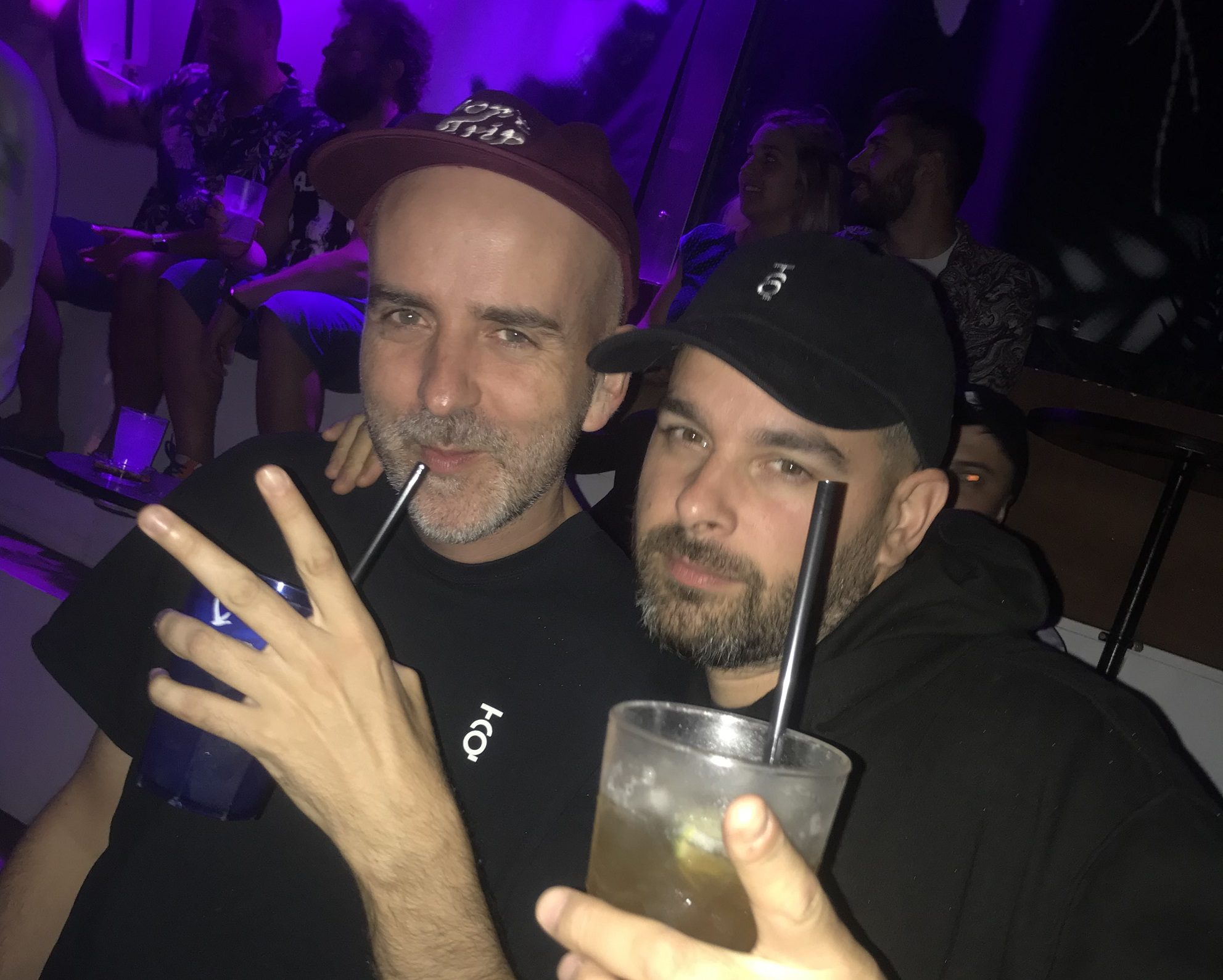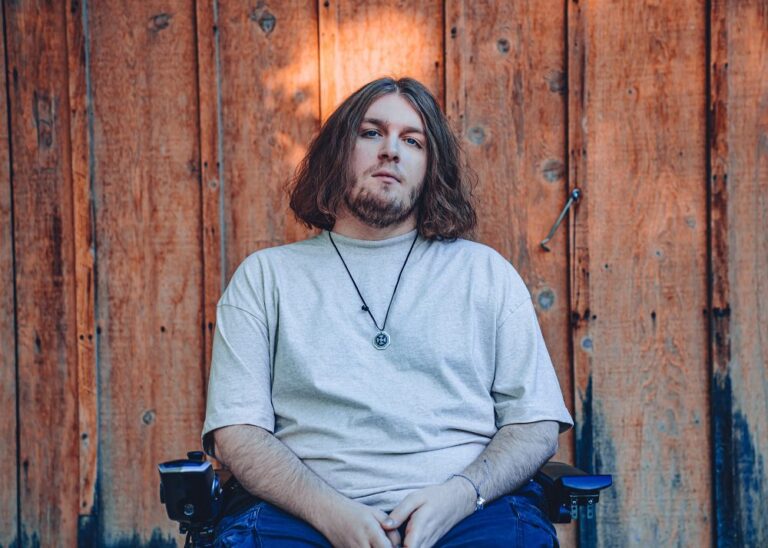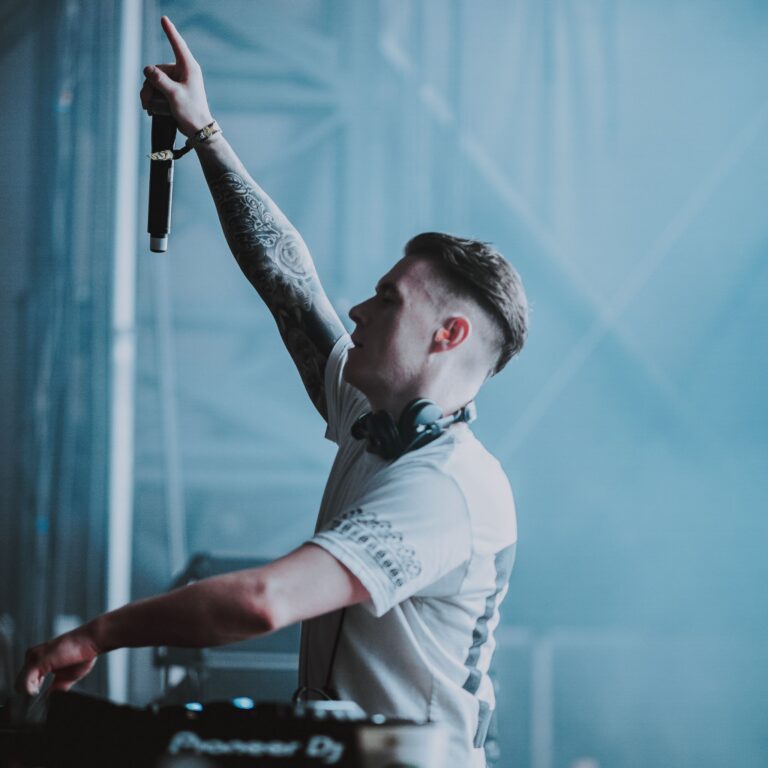Now this is a link-up. With The North Quarter’s latest output, we’re treated to a team effort from two producers who truly set the standard over and over again for liquid drum & bass – Lenzman (Teije) & Redeyes (Julien).
The pair have collaborated on several previous occasions, pulling influence from late-90s jungle and early-2000’s liquid funk to deliver a series of tracks over the years like High & Low, Gotta Change and Hold Tight Girl – all come highly recommended if you hadn’t found these yet.
Now comes a bigger project. Four tracks (plus one instrumental) of that same ilk – a continuation of their work that’s tied together by the idea of harking back to those Wonder Years when the liquid sound was first blowing up.
To achieve the sounds of the era, Teije and Julien stick to the techniques learned in those times – cutting up samples to create new melodies, layering in breakbeats, and also avoiding too much complexity or emotion. Having been active in the game this long, the two friends give us a masterclass in stripping it back – keeping it looping, rolling, and mesmeric.
Wet Like Water and Busters are great examples – repetitive riffs that you could enjoy for hours on-end. The tracks have just enough movement and variation to keep the energy high, ideal for a rolling DJ set. The first single Playing It Off is constructed with the same principles – another instrumental ohrwurm – but Private Joy supplements this with a fantastic vocal performance, making her debut on the label.
You can’t help but appreciate the serendipity of Teije doing his thing in Leiden, Julien discovering jungle in Toulouse, and the two then meeting to push each other to produce some of the best drum & bass we’ve heard.
UKF had to learn more about how their relationship developed, and some of the things they’ve taught each-other over the years.
So I’ve got you two as first linking up in 2009 with High & Low / Thieves In The Night on Integral. But what’s the story behind the two of you meeting?
Teije: I think we first met when I booked Julien. I used to do a night in Leiden with Dan Stezo and a DJ called Scarr. The night was called Fever and it was all about doing soulful drum & bass.
So one day we booked Julien and Craggz & Parallel Forces. It was the first day of the FIFA World Cup 2006 – and it was the first really hot day of the summer as well. I remember we watched some football at my house.
Julian: Yep we did – like a nil-nil, lame game from England or something, haha.
Teije: And no one turned up to the club because everyone was outside drinking and watching the football. It was really really quiet inside.
I guess the memorable nights don’t always have to be the biggest. So you linked up well before that Integral release then…
Teije: Yeah, Julien and I just clicked through the music we liked. I was already making music back then – I might’ve had a few bits signed to Nookie’s label Strictly Digital, but Julien was really receptive and helpful to me. I think we tried writing some music before the Integral release too, there was a tune we made which never came out. We just kept in touch and continued writing, I started getting some releases on Spearhead and Integral, and then eventually the High & Low / Thieves In The Night thing happened.
Nice one – and many more collaborations since then too. How has the collaborative process between you developed over time?
Julien: I think we’re getting better at doing less versions. I remember the first few tunes we did maybe had like 20 versions. But the last few we’ve nailed it in four or five versions. Maybe getting a bit better with age?
Teije: Plus we’ve got more confidence.
Julien: Yeah, more confident, and I also think we’re just keeping it simpler. Often the more time we spent on a tune, the more it lost a bit of its natural energy. And with less time on our hands now we’ve got to be efficient.
Teije: Yeah definitely less time to work on them! But with the Wonder Years EP, I think we had a clear idea of what we wanted to do, based on some recent tunes we’ve written. These ones were like a continuation – especially of the High & Low tune – where we’re trying to re-introduce some jungle energy into soulful drum & bass. Similarly as well for Hold Tight Girl and Gotta Change.
Do each of you have a particular strength when you go in together?
Teije: I think that can vary, but on this release Julien had a lot of ideas that I then worked on, some of them then turned into something different. But I mean it really depends on the project. We’re so on the same page musically, that it’s quite easy to work together. It’s rare that we’d have a big disagreement about the direction of a tune. It’s more about who’s feeling more inspired at the time.
Sometimes it can be a bit like a puzzle – especially with musical drum & bass – and you’re trying to find a piece that fits. You can spend a long time finding the pieces, or sometimes they’ll fit very quickly. So it kind of depends on who’s having luck in that department as well.
Does collaboration help in that sense? Having two people searching for those puzzle pieces.
Teije: Yeah exactly.
Julien: This is what happened with this EP – everything’s been pretty fast. In like four weeks Teije finished up four tracks. It can take months sometimes if you don’t have the ability or creativity.
Teije: Yeah it was quick. It was a lot of talking before and not much action, and then suddenly it all kind of came together. I think creativity in general is a bit unpredictable. But if you feel inspired you can turn something around pretty quickly.
I guess the concept Wonder Years helped bring things together for you – can you tell me a little more about that?
Teije: The concept, musically speaking, was to inject a bit of that jungle energy. The energy that was in those funky and soulful genres in the late-90s to early-00s. There’s different eras and concepts throughout the EP, but the overlapping thought is those ‘wonder years’ for us – where we were buying records, first starting to DJ, and trying to produce. You know, the things that left a strong impression on us as artists.
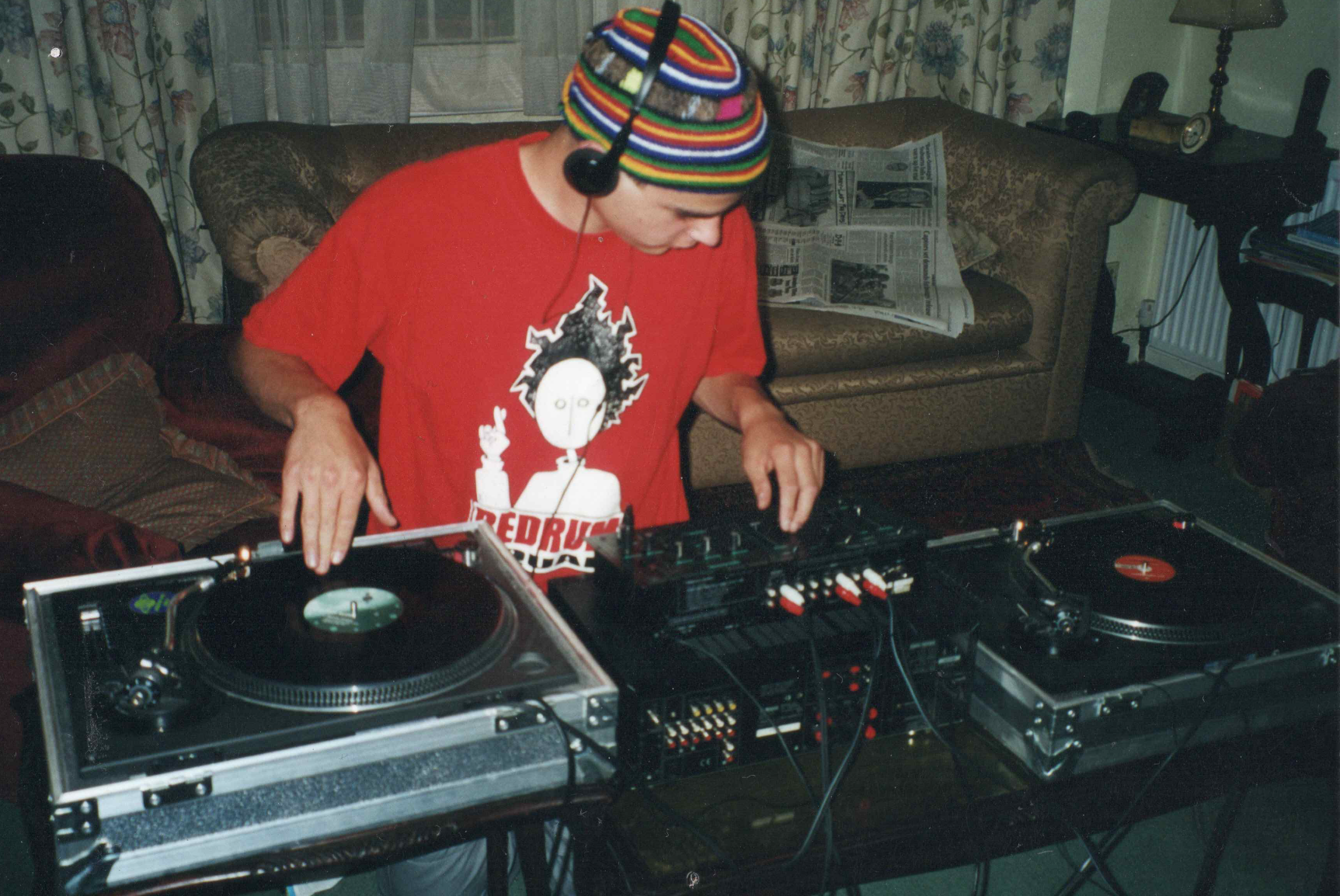
Julien: Late 90s we discovered jungle, early 2000s it was soulful drum & bass – Calibre, Total Science, and so on. For us, it really was the wonder years.
Teije: Yeah. And I feel like soulful drum & bass these days can be quite clinical, and maybe more emotional, sometimes introspective. We wanted to do something that was a bit more stripped back, percussive, energetic…
Julien: And something you can play as a DJ.
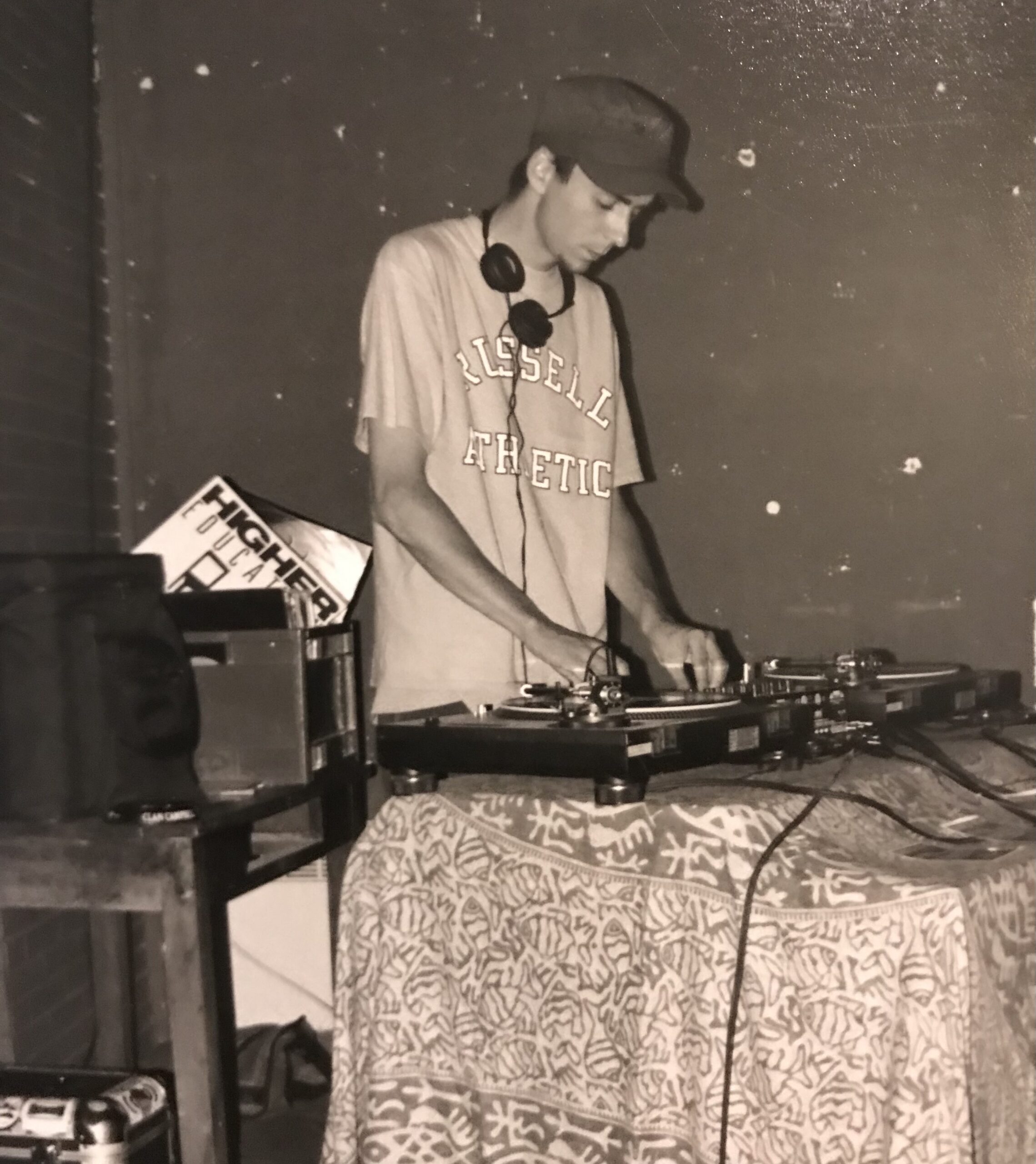
Yeah I get that for sure – especially on Busters and Wet Like Water. These are just simple, solid loops. I think you’ve done super-well at harking back to those early 2000s ‘simpler times’ vibe.
Teije: Thank-you.
Are you getting those dusty loops from samples, or engineering them yourselves?
Teije: There were some samples involved. For example, Busters and Playing It Off have chords that might’ve started off as a sample, that me and Julien played into riffs, and then layered into different sounds, using plugins and things. We both come from sampling, but we try to do everything strictly ‘legal’ these days – so we used packs and session musicians.
Julien: Yeah it’s just simple keys that we chopped and played with. True to the concept – just making a groove. It’s similar to soulful, deep house from the 90s. Pretty basic – you’ve got a kick, a hat, a key. These Wonder Years tunes remind me a lot of this old house stuff, and sometimes the simpler the better.
How do you keep it interesting while maintaining that simplicity?
Teije: We did a lot of playing with the sounds so that there would be movement in the chords for example, through filtering and automation. So they kind of come alive, even though the original riffs might be quite repetitive.
Julien: Yeah you can kind of give it a jazz-feel, by playing with the filter, keeping the tune always in perpetual movement, making it sound a bit more like it’s played live.
Teije: And with the jungle stuff, it’s not necessarily about trying to have really intricate musical riffs and things, because that can distract from the energy that you’re trying to go for. It’s more about this kind of tribal thing, where it becomes like a hypnotic rhythm. You’re layering percussion so you can keep building that hypnotic drum loop moving along with the chords.
So when you land on a loop that you like – you’re just trying to draw it out as long as possible, adding movement as it goes along to achieve that hypnotic rhythm?
Teije: Yeah movement and layering so that it’s progressive without straying too far from the original riff. Expanding on it without going to too many different directions.
Julian: And this is the thing when you build a tune around a sample – you’re limited by the length of the sample. It’s not like making something from scratch, where it can have no ends and you can go in any direction with it.
That’s some wisdom.
Teije: Well yeah, I mean there’s loads of ways you can make music right? But this is something we wanted to do on this specific project.
Julien: Also we come from hip-hop and we’ve got looping and sampling inside us – it’s hard to do something different!
How are you two maintaining consistency after going for so long? Where does the inspiration come from?
Julien: It’s just inside us – we’ve been doing this for 20 years or so, from DJing to producing, to owning a label. It keeps you busy in different forms. Now we have less creative windows because we’re doing other stuff like being Dads, working, running the labels – we definitely have less time to put into production. But speaking for myself, I know when I’ve got a creative window I’m just going to do everything I can to make the most of that.
I could make ten tracks in two weeks in this mode, or finish with a bunch of ideas and sketches. Then I could spend three or four months and nothing comes – so I don’t force it anymore. It used to make me sad, that little voice in your head saying you’re not going to be able to make music anymore. But now I just ignore it, knowing it’s going to come back. And in-between you do more admin for the label or DJing.
Teije: I’m the same as Julien, I have creative windows. Some people are just non-stop with it, like Satl, he’s just always writing 24/7 – he’s a machine. With me I’ll get a few periods in the year where I’m very inspired, and then others where I’m not so inspired. It’s kind of like a battery – once I’ve written a bunch of music then I need to wait to recharge until I feel inspired again. But yeah I think it’ll always be there.
As a producer, I’ve always tried to find new challenges to keep me motivated. For example, starting the label was a big motivator for me for a long time. Also I guess it’s just like… I want people to know that I was here. That’s part of the drive in the long term. Making an impact in some way in my years here on earth, something to say that ‘I was here’.
So when you step away, what fills that creative tank back up?
Teije: For me, it’s rare that I would hear other music, or see a film, or something like that, that makes me really inspired to write. Personally it’s more a case of just needing a break, and just having some time to recharge, and suddenly I’ll feel that drive again. I wouldn’t be able to tell you something specific, it’s more of a time thing. It comes and goes, it’s weird.
Julien: When I was younger in my twenties or early-thirties I was just doing this everyday, but the truth is, a lot of the tracks weren’t so good because I was forcing it. As I’ve gotten older, you learn a bit more about the process and not to force it. Like you were saying Teije, Satl is making tunes every day – and they are all good. For me it’s always been like one good one, and then maybe even a few months until the next. But you’re still learning in these periods.
Teije: I think everyone’s different in that respect aren’t they – some people just have that drive more than others. But I feel like if I was writing too much, even when I wasn’t feeling it, I would just give too much of myself. Because I write from the heart – I guess a lot of people do – but I try to write what I feel inside, and I don’t want to feel too drained by it all.
I’m always interested in how places and settings can influence producers. Toulouse and Manchester are really well known for putting out high quality drum & bass. What is it about these cities that creates that output?
Teije: So I’ve actually never lived in Manchester. A lot of people think there’s a connection. ‘The Northern Quarter’ in Manchester and ‘The North Quarter’ label is a complete coincidence.
Oh! I’d read something about a stint there – but I’ll leave this in the article to clear things up…
Teije: I grew up in a neighbourhood in Leiden called The North Quarter – I named the label after it because that’s where I got into music, and I felt it represented my early days of being really enthusiastic and passionate.
But it’s nothing to do with Manchester unfortunately! Although, there is a really strong connection between Manchester and the label, just through all the artists that have been on it. And even before that, Marcus Intalex introduced me to a lot of people from there like Fox and DRS. Children of Zeus introduced me to IAMDDB, KinKai and Akemi Fox. Faro, who shot a couple of videos on the label, introduced me to Abnormal Sleepz. Abnormal Sleepz introduced me to HMD…
Julien: It’s never-ending! They’ve always got new creative people coming through.
Teije: Yeah there’s something in the water there. They’re always there to help their people come through.
Julien: Some people are just trying to get success over others. But for them, it’s about getting someone new on stage.
Teije: Yeah they really just want everyone to win, rather than being selfish. But yeah, that’s my link to Manchester.
And Touluse – what’s in the water there, Julien?
Julien: It starts with one club, and one guy really. Le Lutin – he had a night at a really famous club in Toulouse called Le Bikini, where he played all the reggae and dub that he’d bought back from London. Then eventually he discovered jungle and brought it back to play for us.
Aside from Le Lutin, the music that Le Bikini played was mostly just rock and concert type music – but then when they started playing jungle there, the party went crazy for it. It was one of the only places in France where jungle and rave music was having much success, but the club would hold around 1000 people, all getting addicted to this music.
Just after 9/11 though, Le Bikini was destroyed due to an accident at a nearby chemical factory. They took some time to rebuild another one, which was much bigger, and then it took some more time to get the new generations to visit this club again. That’s where all these guys like Monty and Visages discovered drum & bass, and then pushed it further. I guess we’ve been lucky to have had this club and have so many good producers come through, I know Teije’s been booked a few times, Calibre, Ivy Lab, and so on.
Toulouse has a special flavour of D&B – that history and context is super interesting. The TNQ flavour is just as distinct and special too. How are you feeling about the direction of the label six years in, Teije, was this always what you’d envisioned?
Teije: I’m really happy with the label and where it is. When I started it I envisioned it to be more strictly soulful, but I feel it’s more diverse now – to keep things interesting and unpredictable, I think that was necessary.
For example with FD, he was one of the first artists to be on there. Looking back now maybe I was mostly signing tunes that he was doing on the soulful side – whereas, y’know, he likes that stuff, but in terms of creative freedom and artistic freedom he wanted to do the heavier stuff as well. I needed to embrace that side of him – let him really be who he is as an artist. I learnt over time that it was important to be diverse and more open-minded in that respect. If it’s only piano rollers then it gets boring. So diversity is important, but I also wanted to have strict quality control – which I’m still serious about.
It’s also much more successful than I could’ve imagined. I was really unsure with how it would go to start with. But it’s really exceeded my expectations, and I’m just really happy with all the artists on the label – we’ve got this family vibe going on and everyone’s friendly with each other, supporting each other’s music, supporting each other full stop. There’s not really anything more I could ask.
Julien – touching on your label for a second, which has just gone 1 year old. How are you feeling about the progress you’ve made?
Julien: It’s slow, really slow. It’s been three releases – two EPs and a single. But I’ve got a lot of artists working on EPs and things now, that will probably almost all be ready at the same time. So hopefully we’ll be a little more active next year.
But I also want to keep involved with The North Quarter because it’s where the family is. So I’m trying to just balance it, and also make something different to TNQ – which isn’t easy. TNQ is a great place for my music, it’s the perfect tone. But I’ve got a couple of friends and we’re trying to make the Five Alley label centred around social justice, trying to make something a bit different, taking our time, and not just making it something around myself.
Has Lenzman and TNQ been a source of advice or inspiration for you?
Julien: Yeah it’s been great to watch him grow – I’m a proud Dad now. He’s been a huge inspiration, the quality control has been amazing from start to finish and sets a good example. Teije also does a great job at getting the best out of producers, and so I get inspiration from that side of it – giving advice and guiding people. At first I wasn’t really confident with it, but now I think people are really happy with the guidance I can provide and giving me good feedback.
Nice one – looking forward to hearing more Five Alley very soon. Do you two have more coming together?
Teije: Yeah definitely. Some of the tunes that we were working on didn’t make it to the EP but we were still happy with them. And I hope that we continue working together…
Julien: …until we die!
And, finally, what’ve you got to plug that’s coming up?
Teije: Julien and I are playing back-to-back with Fox in Birmingham at the Hare & Hounds, and then the week after that, October 7th, we’re playing our biggest show to date at Village Underground – which is Fabio, Jubei, Emma G, FD, Redeyes, Fox, T-Man and myself. Also, on October 20th we’re at ADE in Amsterdam. Music-wise, I like to play my cards close to my chest – but there’s a lot of exciting stuff coming soon.
Lenzman & Redeyes – Wonder Years is out now on The North Quarter
